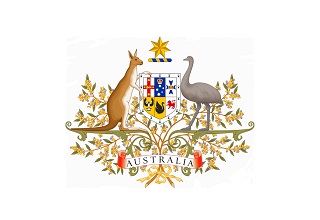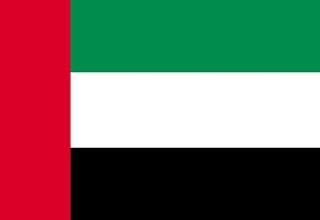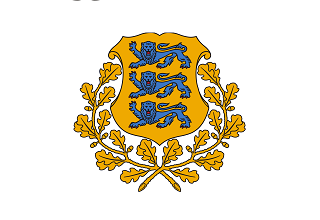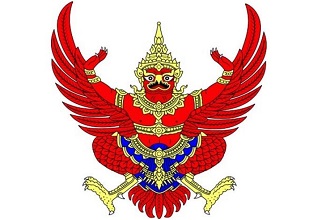Regarding the Inspection and Quarantine Requirements for Feeding Aquatic Animal Protein and Oil from Brazil to China
I. Inspection and Quarantine Basis
(I) "China Biosafety Law";
(II) "China Entry and Exit Animal and Plant Quarantine Law" and its Implementing Regulations;
(III) "Regulations on Supervision and Administration of Inspection and Quarantine of Imported and Exported Feed and Feed Additives";
(IV) "Protocol on Quarantine and Sanitary Requirements for the Import of Brazilian Feed Fishmeal, Fish Oil and Other Aquatic Animal Protein and Oils to China between the General Administration of Customs of China and the Ministry of Agriculture and Livestock of Brazil".
II. Scope of Imported Products
The feed aquatic animal protein and oil in this announcement refers to animal-derived feed such as fish meal and fish oil made from aquatic animals (excluding aquatic mammals) and by-products produced during their processing.
III. Requirements for Production Enterprises
(1) The production enterprises of feed aquatic animal protein and oils exported to China shall be approved by the Ministry of Agriculture and Livestock of Brazil and recommended to China Customs, and shall be qualified and registered after being assessed by China Customs.
(2) The aquatic animal protein and oil production enterprises exported to China shall comply with the relevant laws and regulations of the Ministry of Agriculture and Livestock of Brazil under the effective supervision of the Ministry of Agriculture and Livestock of Brazil.
(3) The aquatic animal protein and oil production enterprises exported to China shall implement the Hazard Analysis and Critical Control Point (HACCP) quality management system or establish a quality management system in accordance with the HACCP concept, and formulate and effectively implement the product recall and traceability system.
IV. Requirements for imported products
(I) Raw material requirements.
1. The raw materials come from aquatic animals caught or farmed in Brazilian waters or the high seas (excluding marine mammals), and are processed and produced from the whole of the above animals or by-products of aquatic product processing plants for human consumption.
2. Aquatic animals that died due to animal epidemics or aquatic animals that were eliminated due to the eradication of animal epidemics shall not be used.
3. It does not contain other non-aquatic animal ingredients.
(II) Production and processing requirements.
1. After heat treatment with a center temperature of not less than 85°C and a time of not less than 15 minutes, or other equivalent processing methods approved by the Chinese Customs.
2. No unknown animal-derived raw materials or prohibited substances are added during the processing.
3. Effective measures are taken during and after the production process to avoid contamination.
(III) Product requirements.
1. The product is allowed to be sold freely in Brazil.
2. The product does not contain toxic and harmful substances that endanger animal health and meets the feed safety and hygiene standards of China and Brazil.
3. Before the product is exported to China, the PCR method is used by a laboratory officially approved by Brazil to test the ruminant-derived ingredients, and the result is negative. The limit value of PCR method for detecting ruminant-derived ingredients DNA is 0.1%.
4. Before the product is exported, it is randomly sampled and tested by the official competent authorities, and the results meet the following requirements:
Salmonella: Not detected in 25g of product: n=5, c=0, m=0, M=0;
Enterobacter: No more than 300 in 1 gram of sample: n=5, c=2, m=10, M=300;
Where:
n-number of samples tested
m-minimum value of bacteria (threshold); if the number of bacteria in all samples does not exceed m, the result is qualified;
M-maximum value of bacteria; if the number of bacteria in one or more samples is equal to or greater than M, the result is unqualified;
c-number of samples with bacteria between m and M, if the number of bacteria in other samples is less than or equal to m, the result is still considered acceptable.
V. Packaging, labeling, storage and transportation requirements
1. Use new, clean, well-sealed and moisture-proof packaging that is not easy to break.
2. The outer packaging of the product needs to be labeled. The label should comply with the requirements of the Chinese national standard "Feed Label" (GB 10648), and should indicate warnings such as "not for human consumption" or "for feed only".
3. Effective measures should be taken during the storage and transportation of the product to avoid contamination.
VI. Pre-export inspection and certificate requirements
The Brazilian Ministry of Agriculture and Livestock implements inspection and quarantine on aquatic animal proteins and oils for feed exported to China in accordance with Brazilian laws, regulations and protocol requirements. If qualified, a veterinary health certificate will be issued to prove that it meets the requirements of the relevant protocol.
VII. Entry inspection and quarantine requirements
(I) Quarantine approval.
Importing companies should apply for the "Entry Animal and Plant Quarantine Permit" in accordance with relevant regulations (except for products that have partially cancelled quarantine approval).
(II) Certificate verification.
1. If quarantine approval is required, verify whether the "Entry Animal and Plant Quarantine Permit" has been obtained.
2. Verify whether it comes from a registered company.
3. Verify whether the health certificate is authentic and valid.
(III) Cargo inspection.
In accordance with relevant laws, administrative regulations, rules and regulations, and in combination with the requirements of this announcement, China Customs will conduct inspection and quarantine on aquatic animal proteins and oils for feed exported from Brazil to China. Those that pass the inspection and quarantine will be allowed to enter the country.
(IV) Handling of unqualified situations.
1. Those without a valid health certificate will be returned or destroyed.
2. Products from non-registered Brazilian manufacturers will be returned or destroyed.
3. Those that do not match the certificates will be returned or destroyed.
4. If soil, animal carcasses, animal excrement, or quarantine pests are found and effective quarantine cannot be carried out, they will be returned or destroyed.
5. If the label does not meet the standards and cannot be corrected, it will be returned or destroyed.
6. If it is found through testing that the safety and sanitation items do not meet the Chinese feed hygiene standards, it will be decontaminated, returned, or destroyed.
7. If loose packages or broken containers are found, the owner or agent will be responsible for sorting them out. If the packaging is damaged and there is a risk of spreading animal and plant diseases, the contaminated sites, items and utensils should be quarantined.
GACC
Dec. 2, 2024




